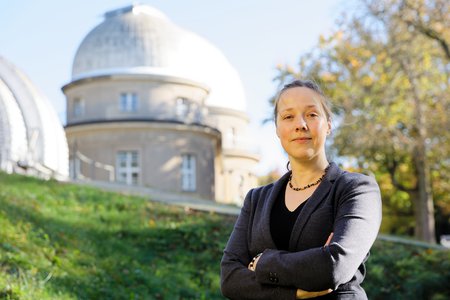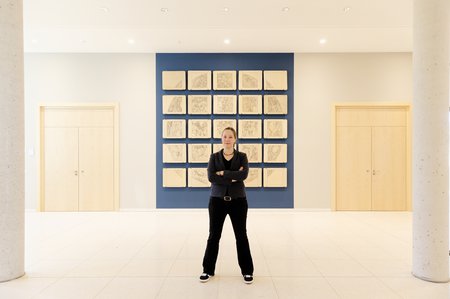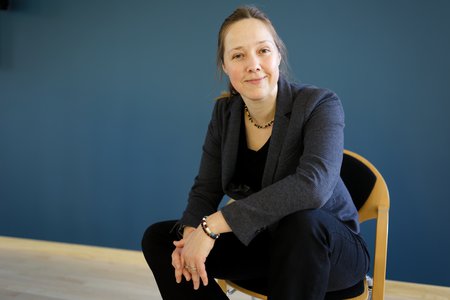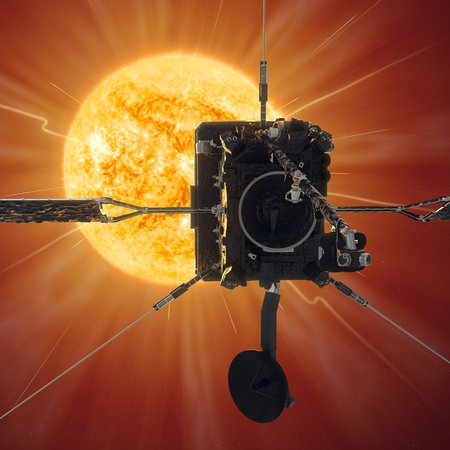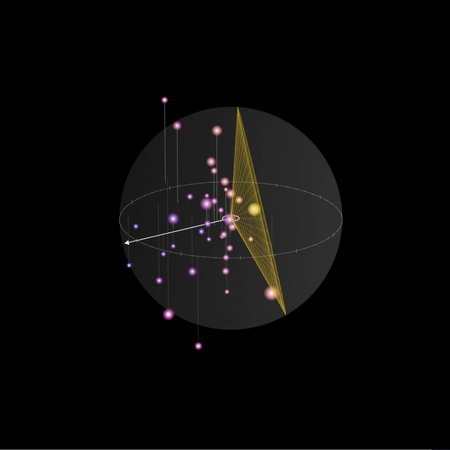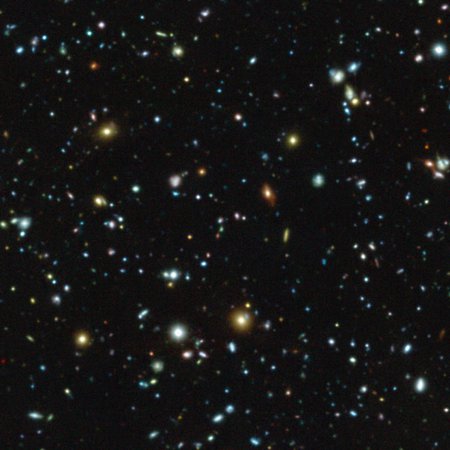Professor Katja Poppenhäger appointed new director at the Leibniz Institute for Astrophysics Potsdam (AIP)
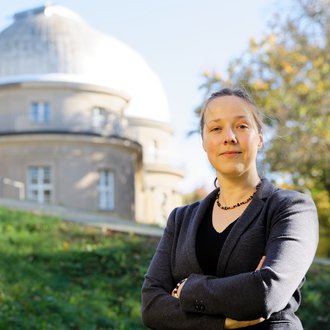
Prof. Dr. Katja Poppenhäger is the first female director in the 325-year history of the Leibniz-Institut for Astrophysics Potsdam (AIP).
Credit: AIP, Thomas SpikermannKatja Poppenhäger has been named the new Director of the research field ’Stellar, Solar and Exoplanetary Physics’ at the Leibniz Institute for Astrophysics Potsdam (AIP). With her extensive international experience in exoplanet research, she is strengthening AIP's profile and establishing new priorities.
Katja Poppenhäger took over the leadership of the ‘Stellar, Solar and Exoplanetary Physics’ research branch at the Leibniz Institute for Astrophysics Potsdam (AIP) on November 1, 2024. She is the first woman to serve as Director in the 325-year history of the institute. Her succession of Professor Klaus G. Strassmeier, who held the position for 24 years and will continue research work at AIP, marks a new focus on the study of exoplanetary systems at AIP.
‘Exoplanet research—focused on planets outside our solar system—will now be a central area of study at AIP, alongside the research of the Sun and other stars. As the first female director, I am excited to continue AIP’s legacy while steering research into new directions. I'm particularly passionate about promoting equal opportunities. Our goal is to attract the brightest minds to help us unravel the mysteries of the universe.’ says Katja Poppenhäger. Professor Matthias Steinmetz, Chair of AIP’s Executive Board and Director of the “Extragalactic Astrophysics” research branch, adds: "With Professor Poppenhäger, AIP gains an outstanding international researcher as Director of the 'Stars, Sun, and Exoplanets' branch. With her, one of the most exciting topics in astrophysics, the question of life elsewhere in the cosmos, becomes a central focus of AIP’s research."
Katja Poppenhäger holds a diploma in physics from Goethe University Frankfurt, awarded in 2004. Between 2005 and 2007, she worked outside academic research in Hamburg before completing her doctorate in astrophysics at the University of Hamburg in 2011. She further honed her expertise at the Harvard-Smithsonian Center for Astrophysics in Cambridge, USA, where she received the prestigious Sagan Postdoctoral Fellowship. In 2018, she accepted a professorship at the University of Potsdam and a section head position at AIP, where she leads the “Stellar Physics and Exoplanets” section. Her work focuses on the interaction between stars and their planets, covering research interests such as stellar magnetic activity, the evolution of star-planet systems, and the search for exoplanets, In this work, she uses both space telescopes like XMM-Newton, Chandra, and TESS, as well as ground-based observatories.
Katja Poppenhäger also plays a key role in international collaborations. She is a member of the steering committee and leads the German contribution to the high-resolution ANDES spectrograph for the European Southern Observatory’s Extremely Large Telescope. She is involved in the scientific teams of international space telescopes such as PLATO and eROSITA and has contributed her expertise to ESA's scientific advisory board for several years.
With extensive leadership experience at AIP and an international research network, Katja Poppenhäger is well-prepared to guide the institute’s future. In her new role, she will work closely with Matthias Steinmetz and Wolfram Rosenbach as part of AIP institute management team, shaping the institute’s scientific direction.
Images
Prof. Dr. Katja Poppenhäger is the first female director in the 325-year history of the Leibniz-Institut for Astrophysics Potsdam (AIP).
Big screen size [1000 x 666, 90 KB]
Original size [5331 x 3554, 1.6 MB]
Big screen size [1000 x 666, 60 KB]
Original size [5416 x 3610, 1.5 MB]
Big screen size [1000 x 666, 50 KB]
Original size [5472 x 3648, 1.0 MB]
